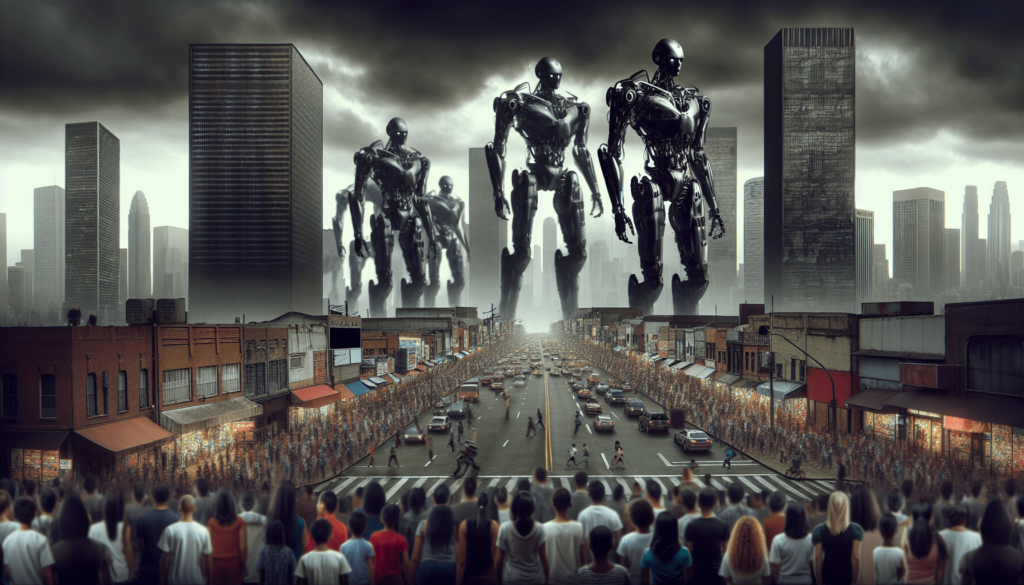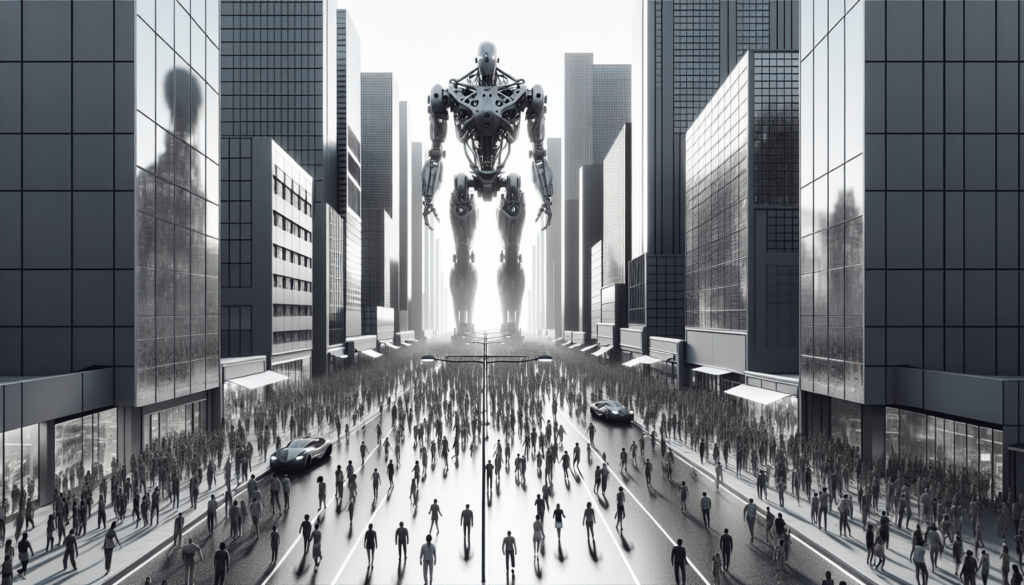The Negative Impact of Artificial Intelligence on Society
Artificial Intelligence, or AI, is a rapidly advancing technology that is becoming more integrated into our daily lives. While AI has the potential to bring about a multitude of benefits, it also has several negative impacts on society. In this article, we will explore the various ways in which AI can have a detrimental effect on our lives.
Unemployment
One of the most significant concerns surrounding artificial intelligence is the potential for job loss. As AI becomes more sophisticated, many mundane, repetitive tasks that were once performed by humans can now be automated. This has led to the displacement of workers in industries such as manufacturing, customer service, and transportation.
If you are working in a job that involves repetitive tasks, such as data entry or assembly line work, AI technology may eventually replace you. It is important to be aware of the potential impact on job security and be prepared to adapt to the changing job market.
Privacy Concerns
With the increasing use of AI in areas such as facial recognition, smart home devices, and social media algorithms, there are growing concerns about the invasion of privacy. AI has the ability to collect and analyze massive amounts of data about individuals, often without their knowledge or consent. This can lead to privacy breaches, data leaks, and the misuse of personal information.
If you value your privacy, it is essential to be cautious about sharing personal information online and to stay informed about how AI technologies are being used to collect and analyze data.

Bias and Discrimination
Another negative impact of artificial intelligence is the potential for bias and discrimination. AI algorithms are often trained on large datasets that may contain biases and stereotypes. This can result in discriminatory outcomes in areas such as hiring, lending, and criminal justice.
If you belong to a marginalized group, you may be at a higher risk of experiencing bias and discrimination from AI systems. It is crucial to advocate for fair and transparent AI systems that are free from biases and uphold principles of equality and justice.
Social Isolation
The rise of AI-powered devices and services can also contribute to social isolation. As people become more reliant on AI for entertainment, communication, and social interaction, there is a risk of losing genuine human connections.
If you find yourself spending more time interacting with AI assistants or virtual companions than with real people, it is essential to make an effort to maintain meaningful relationships with friends and family members. Remember that human connection is vital for our emotional well-being.

Maintenance and Dependence
While AI technology can certainly make our lives more convenient, it also comes with its own set of challenges. AI systems require regular maintenance, updates, and troubleshooting to function effectively. Additionally, as we become more dependent on AI for various tasks, there is a risk of losing essential skills and abilities.
If you rely heavily on AI technology in your daily life, it is important to stay informed about how to maintain and troubleshoot these systems. It is also beneficial to continue honing your skills and knowledge to mitigate the risk of becoming overly dependent on AI.
Ethical Dilemmas
The use of artificial intelligence raises several ethical dilemmas that society must grapple with. Questions about the ethical implications of AI in areas such as healthcare, autonomous vehicles, and surveillance have yet to be fully addressed.
If you are concerned about the ethical implications of AI, it is essential to stay informed about ongoing debates and discussions surrounding AI ethics. It is crucial to advocate for ethical guidelines and regulations that prioritize human well-being and safety.
Environmental Impact
The proliferation of AI technology also poses environmental challenges. AI systems require significant amounts of energy to operate, which can contribute to carbon emissions and environmental degradation. Additionally, the production and disposal of AI hardware can lead to e-waste pollution.
If you are concerned about the environmental impact of AI, consider supporting sustainable practices in the development and deployment of AI technology. Look for companies and organizations that prioritize energy efficiency and environmental sustainability in their AI initiatives.
Conclusion
In conclusion, while artificial intelligence offers many benefits and opportunities, it also has several negative impacts on society. From job displacement to privacy concerns, bias, social isolation, maintenance issues, ethical dilemmas, and environmental impacts, there are numerous challenges that must be addressed as AI technology continues to advance.
As a member of society, it is crucial to remain informed and engaged in discussions about the impact of AI on our lives. By staying vigilant and advocating for responsible AI development and deployment, we can work towards mitigating the negative effects of artificial intelligence and ensuring a more equitable and sustainable future for all.
